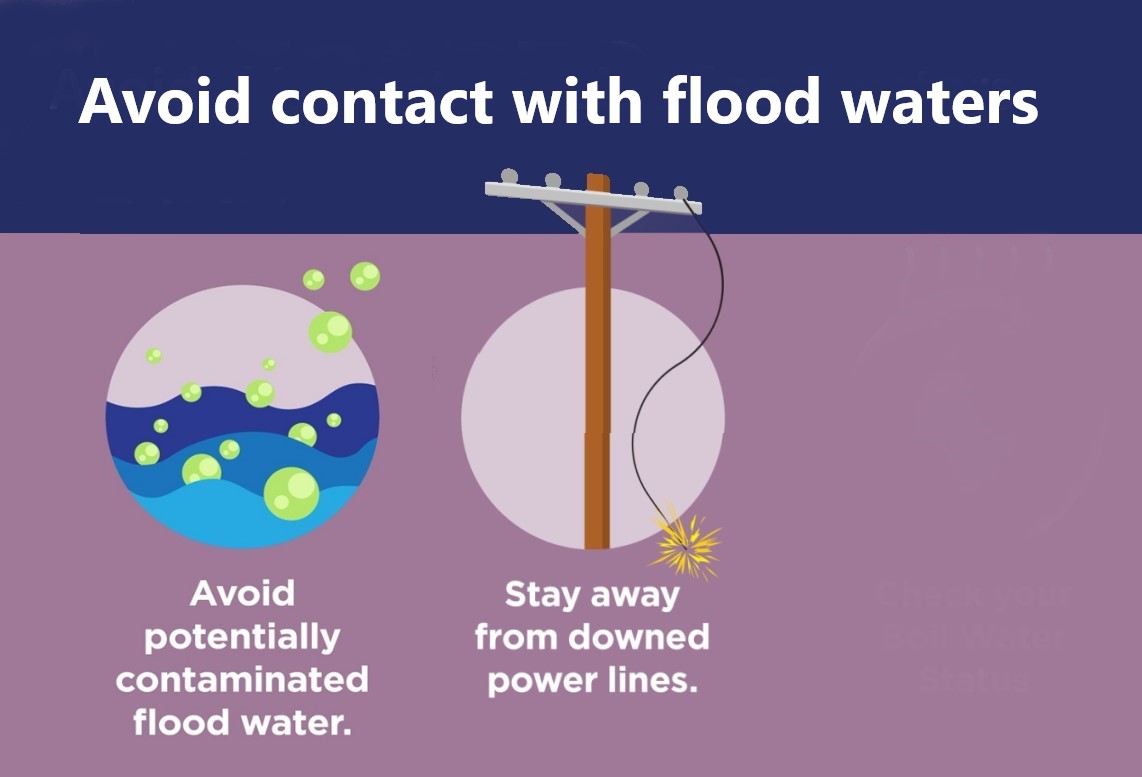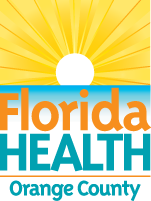It's a New Day in Public Health.
The Florida Department of Health works to protect, promote, and improve the health of all people in Florida through integrated state, county, and community efforts.
FLOODING PRECAUTIONS
November 09, 2022

FLOODING PRECAUTIONS
Contact:
Kent Donahue
Kent.Donahue@flhealth.gov
407-858-1472
ORLANDO, FL – Based on weather forecasts for Tropical Storm Nicole, our area will be impacted with winds and rainfall. It is important to be prepared for flooding.
Moving Flood Water
During flooding, the greatest threat comes from moving water. The deeper the moving water, the greater the threat. People should avoid driving in moving water, regardless of the size of the vehicle.
Pooling Flood Water
Heavy rain causes flood waters to rise and pool on streets and throughout neighborhoods. In these situations, be aware of the following:
- Road surfaces become disguised and drivers can unknowingly steer into a deep body of water, such as a canal or pond.
- Electricity from streetlights and power poles may be present in standing water, causing a deadly shock to anyone coming in contact with it.
- Children playing in contaminated standing water can become sick or be bitten by snakes or floating insects.
- People coming into contact with floodwaters should thoroughly wash and rinse any exposed body parts with soap and disinfected water.
Contaminated Water Supply
Drinking contaminated water may cause illness. Water in a hurricane-affected area may not be safe to drink. Listen to local announcements on safety of the water supply. If the public water system lost pressure, a boil water notice will likely be issued for your area. People in these areas should take precautions to avoid consuming contaminated water. If your well is in a flooded area, your water may contain disease-causing bacteria and may not be safe to drink.
The Florida Department of Health recommends one of the following:
- Boil water for at least 1 minute before using it for drinking, cooking, making ice, brushing teeth, or washing dishes.
- Disinfect water by adding 8 drops (about 1/8 tsp – this would form a puddle about the size of a dime) of unscented household bleach per gallon of water, and then let it stand for 30 minutes. If the water is cloudy after 30 minutes, repeat the procedure. Use a container that has a cap or cover for disinfecting and storing water to be used for drinking. This will prevent contamination.
- Use only bottled water, especially for mixing baby formula.
After the flooding subsides:
- Disinfect your well using the steps provided by your local health department, or located on the Department of Health’s website at http://www.floridahealth.gov/environmental-health/private-well-testing/index.html.
- If available, have your water tested through your county health department or by a laboratory certified by the state to perform a drinking water analysis.
Contaminated Food
- Do not eat any food that may have come into contact with floodwaters.
- Discard any food without a waterproof container if there is any chance it has come into contact with floodwaters.
- Undamaged, commercially canned foods can be saved if you remove the labels thoroughly, wash the cans, and then disinfect them with a solution consisting of 1/4 cup of unscented household bleach per gallon of water for clean surfaces.
- Re-label your cans, including the expiration date, with a marker. Food containers with screw-caps, snap lids and home canned foods should be discarded if they have come in contact with floodwaters, because they cannot be disinfected.
Contaminated Items
- Discard wooden cutting boards, plastic utensils, baby bottle nipples and pacifiers. There is no way to safely clean them if they have come in contact with contaminated floodwaters.
- Thoroughly wash metal pans, ceramic dishes and utensils with soap and hot water and sanitize by boiling them in clean water or by immersing them for 15 minutes in a solution of 1/4 cup of household bleach per gallon of water.
Hygiene
Basic hygiene is very important during a natural disaster. Always wash your hands with soap and water that has been boiled or disinfected and cooled. Hands should be washed before preparing or eating food, after using the bathroom or changing a diaper, after handling uncooked food, after playing with a pet, after handling garbage, after tending to someone who is sick or injured, after blowing your nose, coughing or sneezing, after helping in flood cleanup activities, and after handling items contaminated with flood water or sewage.
For further information on preparing for emergencies, please visit: http://www.floridahealth.gov/index.html for the Florida Emergency Preparedness Guide or https://www.floridadisaster.org/.
About the Florida Department of Health
The department, nationally accredited by the Public Health Accreditation Board, works to protect, promote, and improve the health of all people in Florida through integrated state, county, and community efforts.
Follow us on Twitter at @HealthyFla and on Facebook. For more information about the Florida Department of Health please visit www.FloridaHealth.gov.




Connect with DOH